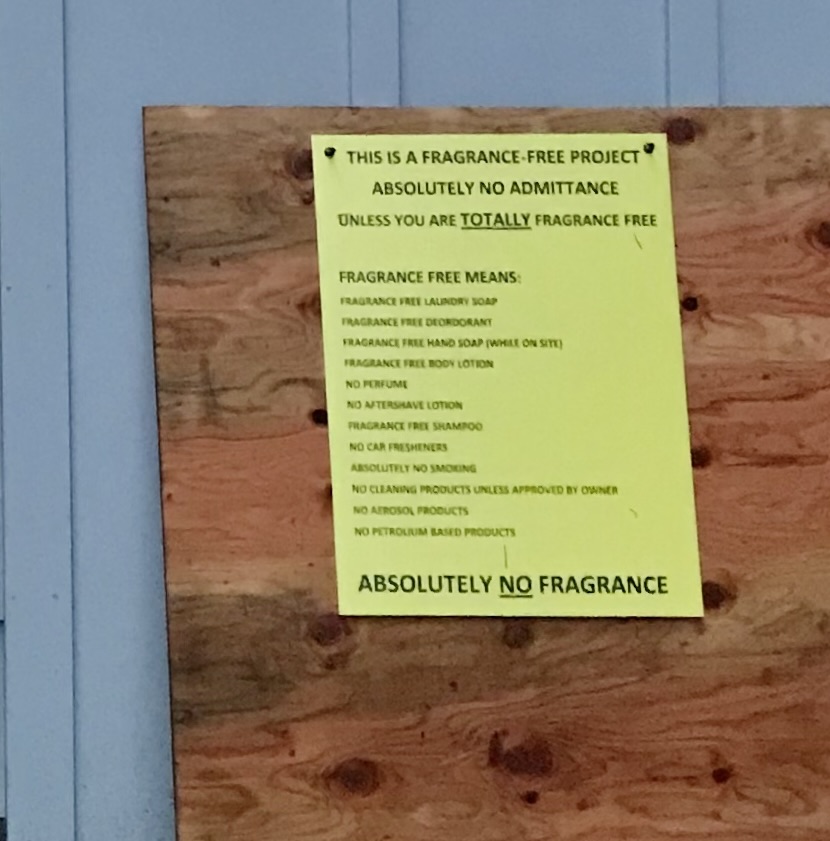
The project manager created this sign on his own initiative, which was impressive. But it fell to the site supervisor to enforce the policy, and he himself was not entirely fragrance-free. It is a difficult concept to convey to people who don’t ordinarily notice fragrance. Nonetheless, he understood that it was part of the contract, and he was willing to do what he could. When problems arose with crew members who thought the policy was weird, it was his job to explain it to them.
I gave the site supervisor permission to refer to me as “a little bit crazy,” if it helped him convince people to be fragrance-free. That seemed reasonable after I removed a tool belt from the house, where it had been left overnight. At the time I was so extremely sensitive that one day when I checked the house at the end of the work day I reacted to a tool belt that had been left inside. To my turbo-charged olfactory sense the laundry fragrance residue on the tool belt from previously worn work clothes was enough to fill the house.
There was a similar problem with the scented Purell that was used at the job site.
And with the SanCan, which had both fragrant soap and a scented sanitizer.
And with the safety fencing, which was made of plastic that had fragrance cooked into it. Two years later it still stank.
And with the contractor trash bags, which had embedded fragrance.
To make it easier for crew members to be fragrance-free I purchased laundry detergent, soap and shampoo and gave them to the crew members who wanted them. But all of the people working on the house were men and a common response was, “My wife/girlfriend doesn’t think you should tell her how to wash our clothes.” My usual response (given to the site supervisor, not the crew member) was, “If he can operate a power tool he should be able to figure out how to operate a washing machine.”
But even guys who were willing to be fragrance-free ran into problems. For example, one man was living in an apartment complex and using the communal laundry room. Even though he washed his work clothes in fragrance-free detergent and skipped fabric softener and dryer sheets, his clothes picked up the fragrance residue in the shared dryers.
On the other hand, some people were very thoughtful. The tile installers arrived wearing Tyvek suits, on their own initiative. I told them it was overkill and not necessary, but on some jobs that might be a good approach. When I had the masonry heater installed several months after I moved into the house I bought a cotton coverall for the installer to wear over his clothes, as he was traveling from another state and staying at a hotel, where he was likely to pick up fragrance.
The effort to create a fragrance-free work site was not entirely successful, but I think it was worth the effort. And the easiest way to counter any objection was to point out that it was in the contract. Everyone on the job site understood that concept.
It was also helpful to keep in mind that the majority of people on construction crews are men, and men’s olfactory bulbs have fewer receptors than women’s. They truly could not smell some of the things to which I reacted.